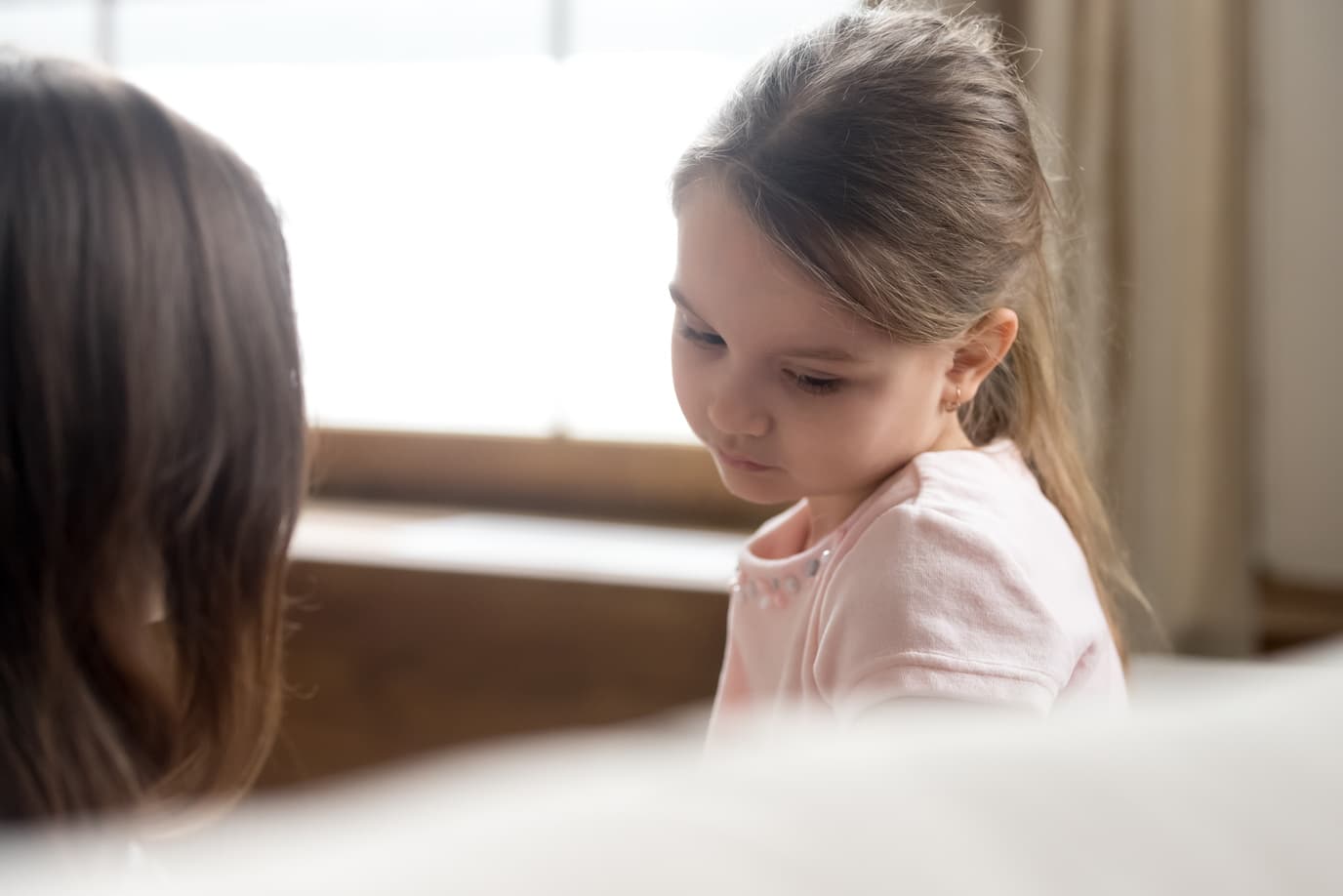What every parent should know about childhood depression

By Brightline team, Sep 6, 2024
Feeling sad is part of the human experience. But knowing that doesn’t make it any easier when you see your child struggling. It can be even harder to figure out (or admit) whether they’re having natural feelings of sadness or what may be clinical depression.
Note: If your child has talked about or shown interest in suicide, it’s important that you seek care immediately. An expert can assess their risk and help you come up with a safety plan. If you’re not sure who to talk to, call or text 988 to reach the Suicide & Crisis Lifeline. (You can also chat from your computer with a trained counselor at 988lifeline.org.) If this is an emergency and you’re concerned that your child will immediately harm themselves or others, call 911.
Kids don’t have the same language skills or behaviors as adults, so it’s easy to miss signs that they’re having a tough time and could use some extra support.
The idea that your child may be depressed can feel scary. But keep in mind that depression is both very common and highly treatable. In fact, the majority of kids respond well to initial treatment.
Some of the causes of kids feeling “low”
Childhood depression is complex. Genes and environment play a part. So does brain chemistry. A child’s individual behaviors and thoughts matter, too.
The following are also believed to increase the risk that a child will experience depression:
Family history of depression (in a parent or sibling)
Family conflict or instability
Adverse early childhood experiences (like abuse or the loss of a loved one)
Problems with friends or school
Gender dysphoria, being gender nonconforming, and/or identifying as LGBTQ+
Previous depression
Anxiety disorder
Learning disabilities
ADD and ADHD
Defiance or conduct disorder
Chronic illness
Signs to look out for
Just like in adults, the most common symptoms of depression in kids are low mood and/or irritability. But not all kids recognize or understand what they feel could be depression. And some kids don’t have the words, the desire, or the communication skills to tell you how they feel. So, those feelings express themselves in their behavior instead. Watch for different indicators like:
Loss of interest. Beloved activities, hobbies, or friends could suddenly become “boring” or “stupid.”
Changes in eating habits. Your child may say they’re not hungry or refuse to eat, or they may feel hungry all the time or overeat.
Changes in sleeping habits. They may have trouble falling or staying asleep, or they could start sleeping longer or napping.
Moving too fast or too slow. You may notice your child has a hard time staying still — they could fidget, wring their hands, or pace. Or, they could become sluggish. You may notice your child moves, speaks, and even appears to process their thoughts more slowly than usual.
Loss of energy. They may complain that their limbs feel heavy, and have trouble starting and finishing chores or school assignments.
Feelings of worthlessness. Depression often goes hand-in-hand with feelings or thoughts of not being good enough. You may notice that your child is quick to self-criticize, take the blame for things that aren’t their fault, or doesn’t try new things because they’re worried they’ll fail.
Trouble with focus. Along with a drop in concentration and memory, your child may find it hard to make even small decisions.
Changes at school. You may notice your child’s grades slipping, or find that they’re not doing or finishing assignments. They could also lose interest in subjects and teachers who they used to enjoy.
When to get support
It can be tough to determine if your child is just feeling sad or experiencing depression. Don’t second-guess yourself. If you notice a change in your child’s mood, how they’re doing in school, or what’s going on with their friends, talk to their pediatrician or another health care professional. Starting the conversation and creating space for your child to express their feelings can help either way.
We can help, too. Brightline’s coaching programs can help kids build coping skills for when they’re feeling sad or down. We also offer therapy with a licensed therapist for depression. Based on your child’s symptoms, we can help you determine the right level of care for what they’re going through — and we’ll help your family get through it together.
Sign up or sign in for helpful resources and access to coaching and therapy.